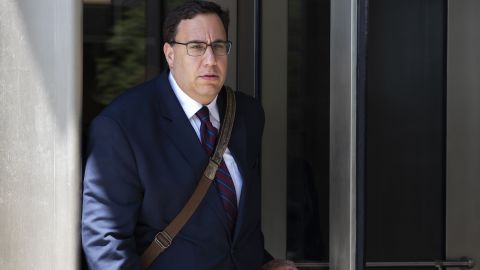
CNN —
Lawyer William Consovoy, who has shepherded the challenges to race-based affirmative action at Harvard and the University of North Carolina since they were filed in 2014, will not be at the lectern for the culminating Supreme Court round on October 31.
Consovoy is being treated for brain cancer, his law partner Thomas McCarthy told CNN.
Consovoy argued against Harvard’s admissions practices in a lower US appeals court in September 2020 and has been a prominent attorney on conservative social causes. He also represented former President Donald Trump in multiple state election law disputes leading up to Election Day in November 2020.
The Consovoy McCarthy firm recently informed the Supreme Court that Cameron Norris will argue on behalf of the challengers, Students for Fair Admissions, against Harvard. Another lawyer with the firm, Patrick Strawbridge, is scheduled to argue the separate University of North Carolina case.
Consovoy, Norris and Strawbridge are all former law clerks to Justice Clarence Thomas, who with other justices on the right wing opposes campus affirmative action and other policies that take account of an individual’s race. Thomas has argued that they violate the Constitution’s equal protection guarantee and end up stigmatizing the people they were intended to benefit.
The twin lawsuits against an elite private campus and prestigious state university could lead the increasingly conservative Supreme Court to overhaul campus admissions nationwide. The litigation was designed to obtain reversal of a 1978 Supreme Court landmark that first allowed students’ race to be considered as a factor, with academic and extracurricular criteria, to ensure campus diversity. That case, Regents of the University of California v. Bakke, was affirmed by the justices in a 2003 case from the University of Michigan, Grutter v. Bollinger.
The Bakke precedent has enhanced the educational opportunities for Blacks, Hispanics and other racial minorities for decades, as it has remained a flashpoint. Lower court judges spurned the claims against Harvard and UNC, relying on the established precedents, but the current 6-3, conservative-liberal high court is likely to be more receptive to the challengers.
Consovoy and McCarthy created their original two-person firm after leaving a large Washington practice about eight years ago. It has grown to twenty lawyers, many who’ve arrived from clerkships with conservative justices and lower court judges.
Norris, 14 years younger than the 48-year-old Consovoy, has appeared before the nine justices once before. He argued a 2020 tax case, CIC Services v. Internal Revenue Service. That same year, he defended Trump in financial-documents litigation with the US House of Representatives, Trump v. Mazars, in federal appellate court. Norris has also represented the Republican National Committee.
McCarthy declined to offer details of Consovoy’s cancer but said it was first diagnosed about two years ago. He said Consovoy plans to listen to an audio livestream of the arguments from his Virginia home on October 31.
For more than a decade, Consovoy and McCarthy have been part of the litigation teams hired by conservative activist Edward Blum, who created the Students for Fair Admissions group that is attempting to end any consideration of race in admissions screening.
Blum separately engineered lawsuits over the 1965 Voting Rights Act, including the litigation that led, in 2013, to Shelby County v. Holder, which gutted a portion of the milestone law that had required localities with a history of discrimination to obtain federal approval before changing their electoral practices.
In the upcoming affirmative action showdown, Seth Waxman, a former US solicitor general now in private practice, will be at the lectern for Harvard. North Carolina state solicitor general Ryan Park will represent the state university.



